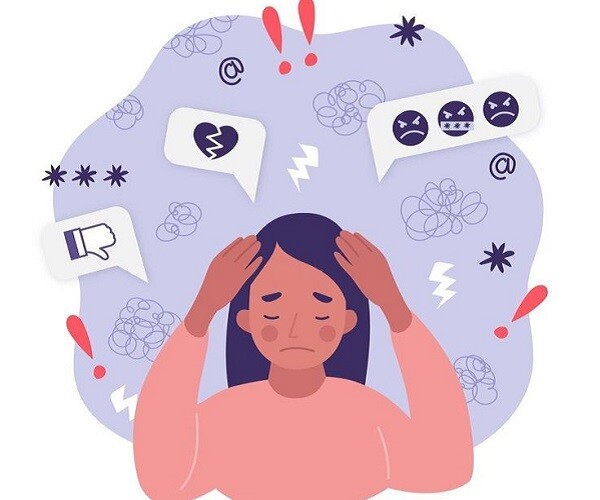Why does this happen? How should parents respond to their child’s early romance?
This begins when adolescents undergo mental changes during puberty. Physical and mental changes will occur rapidly. During this phase, they begin to develop an interest in the opposite sex, and their emotions become richer and more complex.

Driven by hormonal changes, adolescents’ curiosity about love gradually increases. In fact, the emotional needs of teenagers are natural and not as “futile” as we think.
Their bodies and minds are undergoing a transition, and emotional fluctuations often exceed the control of their rationality. This is especially true for girls.
Experts point out two noticeable characteristics that indicate girls may enter the phase of “early love”. When parents recognize these signs, they can guide their daughters to express their emotions healthily and maintain a good academic performance.

Girls with these two traits may fall in love early?
Attractive appearance and a humorous personality
Many adolescents with distinctive and attractive appearances, along with cheerful and humorous personalities, easily become the center of attention in their class.
They tend to be confident in communication, knowing how to create humorous conversations and make those around them feel comfortable. This confidence not only helps them connect with peers but also creates a positive environment.
From an expert’s perspective, when someone attracts many friends, the likelihood of early romance also increases. Those with natural charisma tend to be the center of attention and admiration.
While this first romantic experience can be exciting, it also presents challenges as adolescents navigate closeness and deep friendships.

Adolescents with attractive appearances easily draw attention from the opposite sex.
Outgoing, cheerful, and full of positive energy
Their openness and friendliness make it easier to connect with peers, which can lead to complex relationships. Teenagers are curious about the opposite sex, and girls with cheerful personalities tend to attract more attention from boys.
They are admired for their liveliness and their ability to create joyful and memorable moments, making them the center of attention within their group.
Emotional development at this stage involves not only exploring love but also discovering oneself and one’s desires and needs.
However, early romance can also bring challenges. Adolescents may feel pressured by family, peers, or themselves…
Therefore, family support is crucial, understanding that emotional development is a natural process that shouldn’t be rushed.

So, how should parents respond to their child’s early romance?
Open communication to understand their inner world
When faced with their child’s early romance, parents’ reaction is crucial. Many may immediately oppose or even intervene forcefully, believing it affects their studies.
However, overreacting can be counterproductive, leading adolescents to hide their emotions or even develop rebellious tendencies.
Therefore, parents should adjust their mindset and communicate openly to understand their child’s perspective and respect their emotional needs.
Mothers can discuss emotional issues with their children through daily conversations, understand their views on love, and help them form healthy thoughts about it.
Parents should gently guide and express that romance in school is not inherently bad, but at an age where studies take priority, emotional matters need consideration.
Through open conversations, they can strengthen their relationship, helping adolescents balance their emotions and academic life.

Open communication helps understand their inner world.
Set appropriate boundaries and rules
Teenagers tend to be impulsive, emotional, and prone to making irrational decisions. While parents should respect their child’s emotional needs, it’s necessary to set clear boundaries.
For example, love shouldn’t interfere with study and rest time. A certain amount of study time should be maintained, and romantic pursuits should be moderate.
By setting rules, parents can ensure their child maintains good academic performance while not stifling their emotional development.
Pay attention to their emotional state
Parents should be attentive to their child’s emotional state. If early romance doesn’t noticeably affect their studies, and they can balance academics and their relationship, there’s no need for excessive worry.
However, if their grades drop or they experience emotional issues due to romance, parents should intervene promptly.
This is to help adolescents differentiate between genuine feelings and impulsive urges, protecting them from potential harm caused by early romance.

Parents should be attentive to their child’s emotional state.
Understand the normalcy of early romance
As adolescents enter puberty, early romance is a common issue for most families. It’s considered normal, as they are in a phase of exploration and development.
What’s important is that parents provide proper guidance, helping them maintain a healthy and rational perspective on love.
Respect their emotional world
Parents’ attitude is especially crucial when discussing love with their children. By respecting their emotional world and understanding their needs, parents can support their healthy development.
Adolescents’ journey to adulthood is filled with challenges and opportunities. Thus, parents should respect, understand, and provide support to help them navigate this phase healthily and rationally.







































